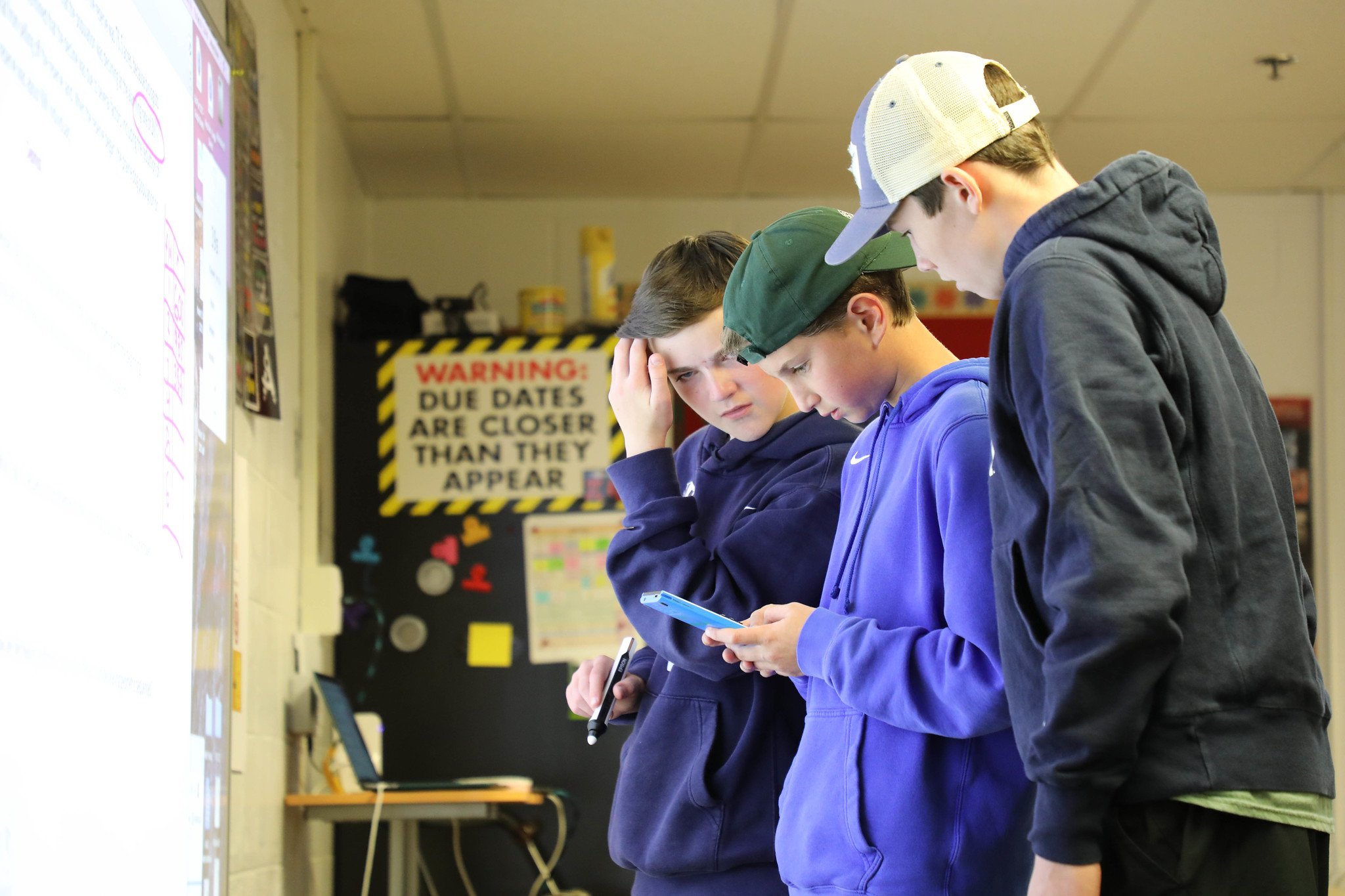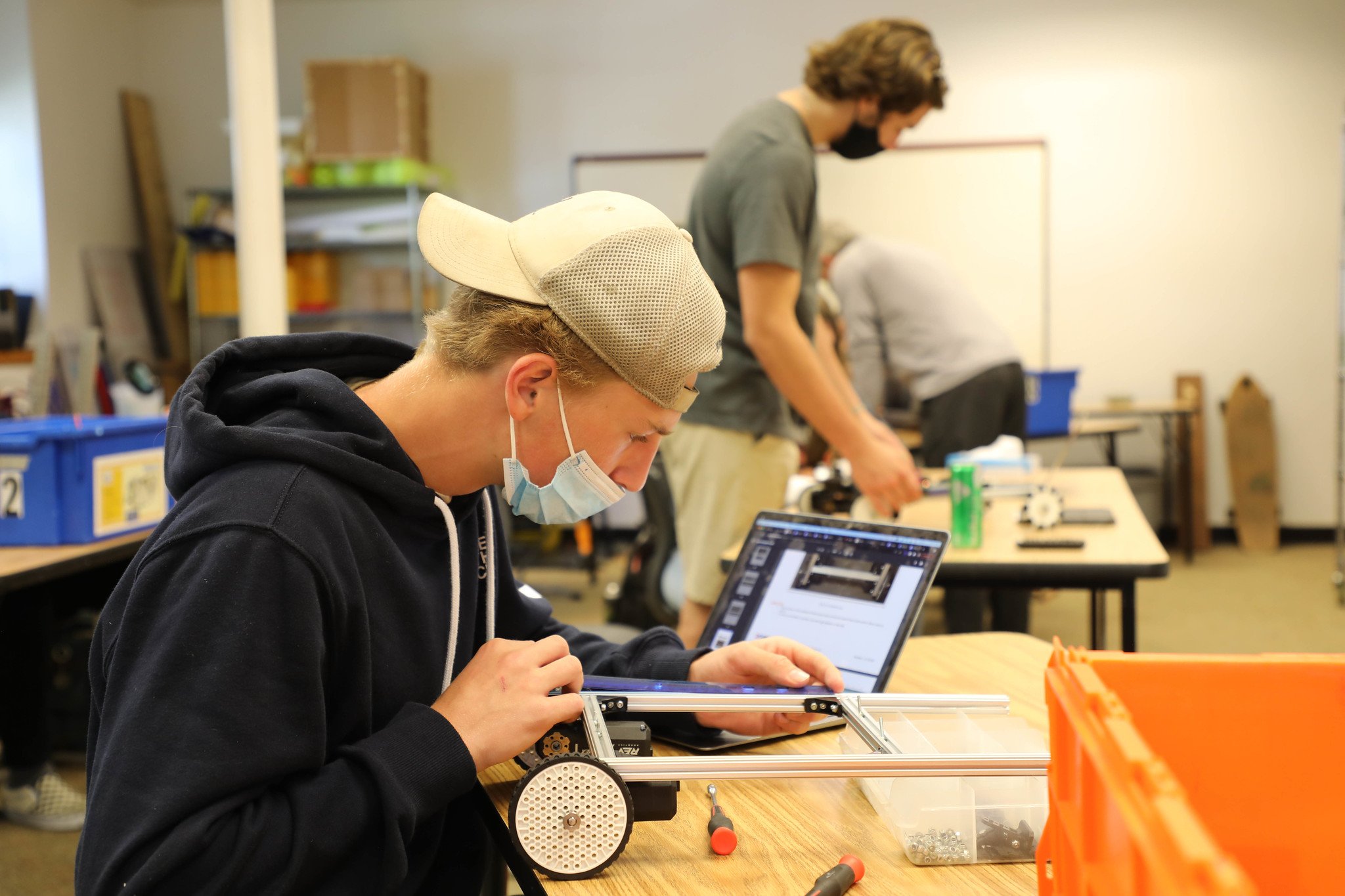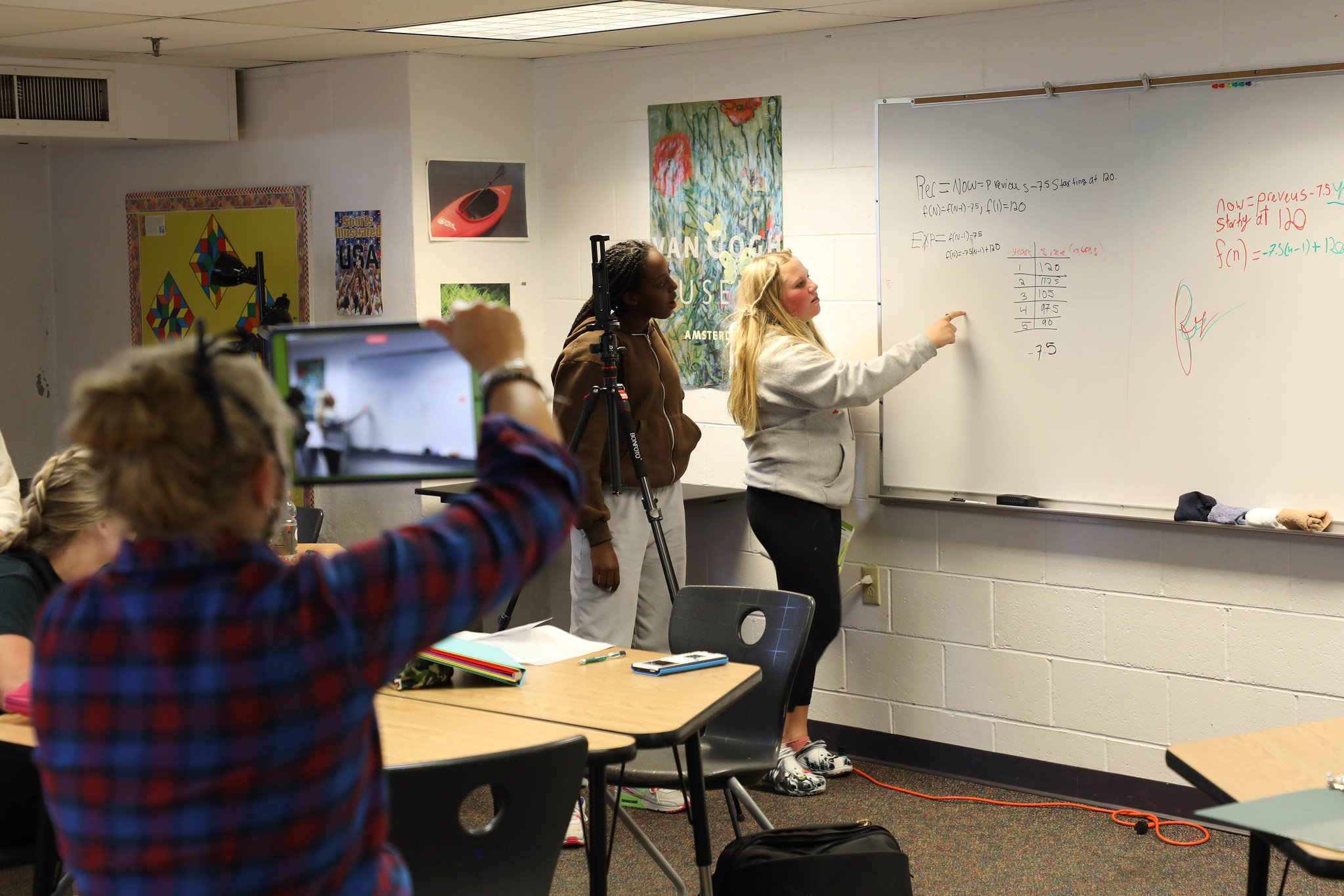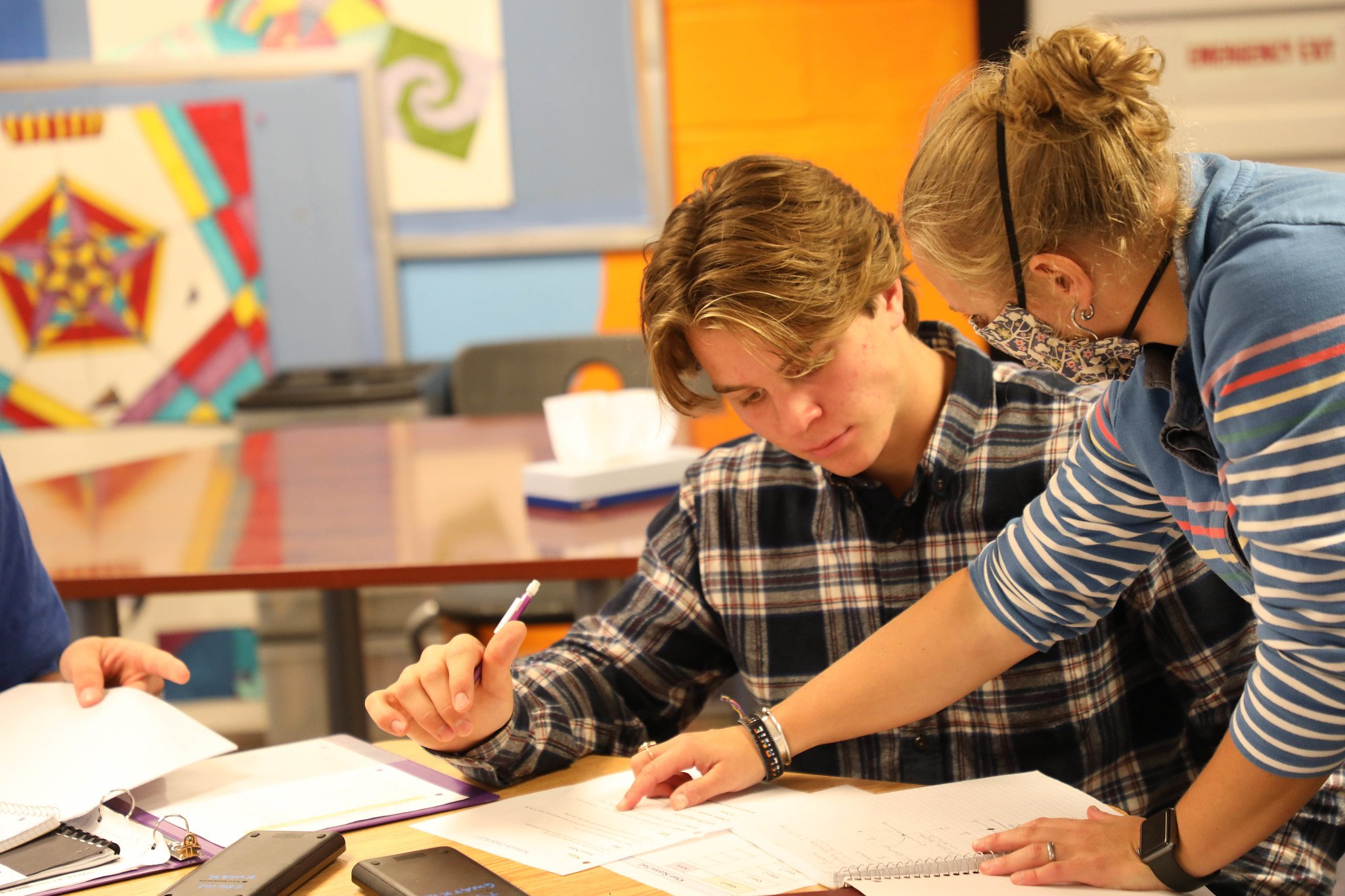The Proctor Mathematics Department has begun a transition from a textbook-based curriculum to one that is centered around rich tasks that all students can access (low floor, high ceiling). We believe that everyone can learn mathematics, and feel that transitioning from textbooks will help us further our vision of equitable learning.

We have always looked for ways to engage our students in productive struggle. We want our students to learn how to apply mathematical principles to solve problems that don't exist yet. We believe that mathematics is not about memorizing a set of procedures that students apply to problems in repetition, and yet, most textbooks take this approach.

Several years ago, the department read Stanford professor Jo Boaler’s book Mathematical Mindsets which lays out a vision of mathematics that is different from what has been taught in schools in the past. It contained research that confirmed our intuitions. These two TED Talks nicely capture why we are shifting:
Dan Finkel on the Beauty and Playfulness of Mathematical Thinking
Dan Meyer on Slowing Down
The department has been discussing what works and what doesn’t work about the ways that we have to teach mathematics. While we have many departmental practices that we like (portfolios, projects, Triple R’s, fun and social extra help sessions, Supercorrections, Show What You Know assessment models that allow multiple retakes), we are not fans of the “show several examples and ask students to go repeat that process” approach.

After research and discussion with area educators (Jen McAleer, Middle School Math Department Head at The Carroll School, Jess Jacques, Mathematics Specialist for the Merrimack Valley School District and Professional Development Trainer at UNH, and our very own Starr Fair), we have chosen Open Up’s open-source curriculum, based upon the Mathematics Vision Project:
The MVP classroom experience does not look like the traditional math classroom that students may have experienced in the past. In the MVP classroom, the teacher launches a deep mathematical task and then allows students time to work with a partner or small group on solving the task. The teacher circulates among students and encourages them to explore, question, consider, discuss their ideas, and listen to the ideas of their classmates. Then the teacher brings the whole class back together to discuss different solution pathways and the mathematics involved. Therefore, the teacher’s role continues to be of utmost importance and central to the successful implementation of the MVP curriculum materials.
Most importantly, while it provides a structure for our classes, we are free to modify it over the coming years to fit our specific needs and vision here at Proctor (because it is open-source). Our plan is to implement this curriculum over three years at Proctor, introducing Integrated Math 1 this year, followed by Integrated Math II in 2022-2023, and Integrated Math III in 2023-2024. Academic Dean Derek Nussbaum Wagler notes, "As educators, we know that our 'magic' lies in the personal relationships we develop with our students and that magic allows us to support students through their productive struggles. By using a curriculum that is flexible and problem-based, faculty are more able to build and use their relationships with students to help them grow their understanding. Many students arrive at Proctor with a pre-conceived notion that they are not 'good at math', or they are not a 'math person.'"

In addition to this exciting evolution related to integrated math and our core courses, we continue to offer a full range of regular and honors courses from Math 1 and Intro to Programming through AP Statistics, AP Calculus, and AP Computer Science as well as wonderful electives such as Architectural Design, Personal Finance, Math Design Theory, Problem Solving, Field-Based Mathematics, Statistics, and Engineering. We are excited about that which we are teaching and the professional growth that our team is embracing. As Dean of Faculty Karl Methven recently mentioned to our department, “The energy radiating out of lower Shirley might just knock the building off its foundation.” Ultimately, that’s all we can hope for as educators: be on fire for learning so our students can’t help but catch fire as well.








